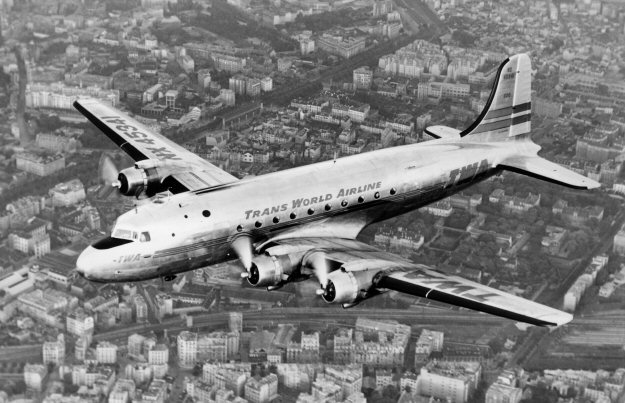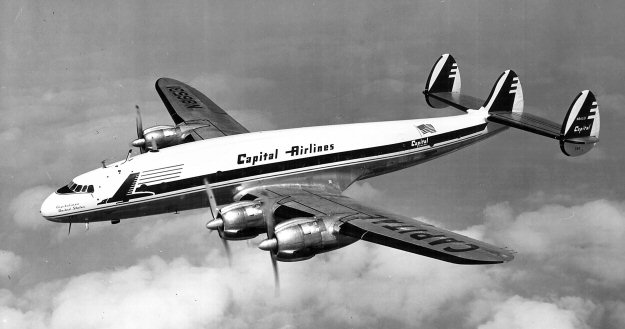Ding! That's it, it is the DC-4E. Like almost all piston engined aircraft development during these times, the size of the DC-4E was too large for the power available, and it was too expensive to fly and maintain. It was begun as a project with United Air Lines, looking for something approximately double the size of the DC 3. A number of other airlines intended to get them, as well, but after this first and only version was loaned to United for feasibility tests, it became clear that it wasn't going to work out.
I guess "predecessor" is a flexible term, but it did serve to cause Douglas to go back to the drawing board and design a smaller aircraft that became the DC 4, based on the lessons learned from the DC 4E. When the new aircraft came out, this aircraft was called the DC 4E.
The "real" DC 4, the smaller version, turned out to be the right track, and it was later up-powered by the fantastic Pratt & Whitney R2800 radials (the DC 4 was powered by a stretched (bored out) version of the Pratt & Whitney R1830 14 cylinder 2 row radial. It was stretched to 2000 cubic inches so that it would provide 1250 horsepower on 80 octane aviation fuel. The wide availability of 100 octane fuel then allowed power up to 1450 horsepower for the DC 4, the same power as the DC 4E from its special R 2180 Pratt & Whitneys.) in the DC 6. The R 2800 was one of the most amazing engines ever, being powerful and reliable. The reliability and economy of the R 2800 powered DC 6 was the highest ever recorded for large piston engined airliners.
Finally, the DC 4 design was stretched a few more times in the DC 7. the DC 7 finally stepped up to the larger R 3350 Wrights used by the Lockheed Constellations, specifically the Turbo Compounds. These engines each used three exhaust-driven turbines connected to the crankshaft, which added power to the output, resulting in a very low fuel consumption for the amount of power they produced. However, they were never as reliable as the older R2800s, having the bad habit of catching fire. Finally, Douglas stretched the wingspan by adding 5 more feet on each side, which added range, weight capacity, and moved the engines further from the cabin for less noise. This DC 7C version was the first commercial aircraft to be able to make both the east and westbound New York to London flights non-stop, using again upgraded Wright Turbo Compounds of 3400 horsepower each.
Lockheed had to go back to their drawing board and redo the Constellation and come up with the L 1649 Starliner to equal this performance, but by then, jets were starting to take over commercial aviation.
The swoopy fish fuselage of the Constellation looked more aerodynamic than the Douglas with its straight sided cylinder fuselage, but this wasn't so in practice, and the complex curves of the Constellation were much more difficult to stretch, like the DC 4-6-7 series from Douglas. The DC 4 fuselage was stretched from 93' 10" in the DC 4 to 112' 3" in the DC 7C, and all used the same wing of 117' 6", except for the DC 7C, which was stretched 10' overall.
As Grumpy said, the only DC 4E was sold to the Japanese before Pearl Harbor who used it as a model for the Nakajima G5N1 bomber

Only a few were built and they were used by the IJN as a transport, Japan never developing an effective strategic bombing threat with them.
My favorite of all of these is the DC 6, because I love the R 2800 (used in F4U Corsairs, F6F Hellcats, F7F Tigercats, F8f Bearcats, P47 Thunderbolts, and A 26 Invaders, among other aircraft) and because I love its classic, totally clean lines:

















